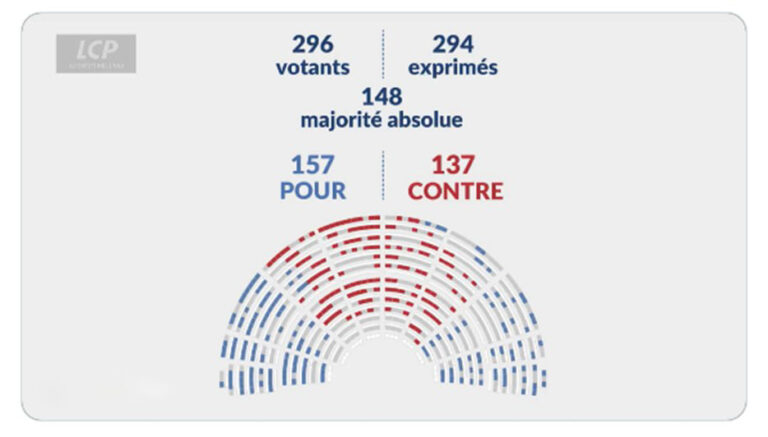Greece’s mandatory rapid test for non-vaccinated employees, now extended, faces legal challenge from teachers
In recent weeks and months, many national authorities have waxed and
waned in terms of the imposition and maintenance of COVID-related
restrictions, even if they never fully backed away from such a threat.
The latest narrative that is widely being utilized to justify the reimplementation
of some restrictions being China’s recent ‘COVID surge’ and the country’s
concurrent opening of its borders to international travel.
However, one European Union member state — which for a long period
maintained the strictest set of COVID-related measures in Europe — has
never ceased requiring employees in most economic sectors to be vaccinated
or to present negative rapid tests on a weekly basis, and continues to do so.
Greece, which in the midst of the COVID-19 crisis maintained some of the
strictest restrictions and measures in Europe and the world, has extended its
rapid test mandate for unvaccinated workers until March 31, 2023 following
the passage of a new healthcare law on Dec. 23.
This vote came during the same month that even China, renowned for its
strict COVID-19 policies until recently, backed away from its zero-COVID
policy.
Law 5007/2022, which foresees the extension of the rapid test requirement,
was passed despite hundreds of opposing comments submitted during the
preceding public deliberation period, and despite a recent ruling by Greece’s
Council of State — the country’s highest court — that the ongoing suspension
of unvaccinated Greek medical workers was not only unconstitutional, but was
not justified on the basis of any legitimate epidemiological or scientific criteria.
One category of professionals, however, launched its own response to the
ongoing rapid test requirement even before this mandate was extended.
In late October, A group of over 1,500 schoolteachers from throughout
Greece, with the support of a range of nonprofit and activist groups, delivered
a cease-and-desist letter to Greece’s education and health ministries. This
action has since been followed by the filing of lawsuits by individual teachers
against the respective ministries, challenging the rapid test requirement.
In an exclusive interview with Children’s Health Defense (CHD) Europe,
Athens-based attorney Vasilis Papanikolaou, one of the lawyers who has
been active in opposing many of the Greek government’s COVID-related
measures, discussed the actions being taken against the rapid test
requirement and the potential next steps that may follow.
Teachers stand up against rapid test requirement
Even before the passage of the Dec. 23 legislation extending the rapid test
requirement until March 31, 2023, teachers and educational workers, just as
many other categories of unvaccinated and “not fully vaccinated” public- and
private-sector employees in Greece, were required to present one negative
rapid test per week in order to legally continue working.
On Oct. 24, 2022, a cease-and-desist letter signed by 1,569 schoolteachers
and employees in the educational sector was delivered to the Greek ministers
of health and education, with a copy also delivered to the public ombudsman.
The letter demands the immediate cessation of the rapid test requirement,
presenting a range of arguments in favor of the requirement being lifted, and
stating in part:
“With this letter, as educators and employees in the sector of education, we
are expressing our vociferous opposition for the continuation of the …
illogical, vindictive, torturous and racist weekly rapid test requirement for
unvaccinated, non-fully vaccinated, non-recently vaccinated (within the past
nine months) and non-recently infected (within the past six months)
employees, under the threat of unpaid and uninsured suspension.”
Some of the 11 arguments put forth by the teachers and educational workers
in their letter include:
- The recognition, by the medical community, that the vaccinated can
both be infected by and transmit COVID just as much as the non-
vaccinated, thereby rendering any discrimination of the non-vaccinated
on this basis a violation of fundamental human rights. - That the U.S. Centers for Disease Control and Prevention (CDC), as of
Aug. 11, 2022, no longer considers one’s vaccination status a useful
criterion for the enforcement of COVID-related countermeasures. - The contradiction of requiring weekly rapid tests for teachers and
employees in educational facilities, when there is no similar
requirement for anyone else entering such facilities, including students
and guests. - The financial expense of employees being obliged to pay for weekly
rapid tests out-of-pocket places an undue burden on them, violating the
constitutional principle of proportionality in reference to the measures
being enforced in response to COVID-19. [This “principle of
proportionality” was the basis of the Council of State’s ruling striking
down the suspensions of unvaccinated medical workers as
unconstitutional]. - The administration of a rapid test is a medical act, which requires
informed and voluntary consent on the part of the individual to be
tested. Mandatory testing, as a result, violates the Greece’s medical
Code of Ethics, which is codified into Greek law, as well as several
other laws and international treaties to which Greece is a signatory. - The administration of a rapid test, as per the very instructions
accompanying the testing kits, calls for such tests to be conducted only
within the first five days of the onset of symptoms. As a result, taking
such tests without any evident symptoms violates the prescribed
process for the administration of such tests. - The continued rapid test requirement comes in complete contradiction
to the lifting of practically all other COVID-related measures,
domestically and globally.
The letter goes on to note that such arguments have repeatedly been put forth
by numerous organizations representing educators in Greece, and that based
on these arguments, it is clear “beyond a reasonable doubt” that the
continuation of the rapid test requirement served no purpose other than to
operate as a vindictive measure against those who have opted not to get
vaccinated, thereby creating a “climate of opposition and division amongst the
citizens.”
The 1,569 educators, in concluding the letter, called upon the ministers of
health and education to immediately take all necessary steps to lift the rapid
test requirement, and also call upon the office of the public ombudsman to
examine the legality and constitutionality of the ongoing requirement and, in
response, to take all necessary steps within its purview.
Individual lawsuits to be filed challenging the rapid test mandate, as activist groups line up to support legal efforts
Unsurprisingly, no official response to the cease-and-desist letter arrived, from
either the Greek Ministry of Education or the Greek Ministry of Health. This
has resulted in lawyers preparing lawsuits against these two bodies and
calling upon the public to submit a filing.
In a Nov. 23 posting on her Facebook page, attorney Stella Patrona made
available a legal template to be followed by any individual employed in the
private sector that wishes to file a lawsuit against the Greek authorities in
relation to the rapid test mandate. According to Patrona’s post, this will soon
be followed by a similar template to be used by educators and other public
sector employees if they wish to file a lawsuit.
In her post, Patrona clarified that the main legal argument being put forth in
this template challenges not the rapid test mandate itself, as previous Council
of State decisions found it to be constitutional, but instead, the out-of-pocket
costs of getting the rapid tests.
The template made available by Patrona asks potential plaintiffs to declare
the number of rapid tests they took during the period when the measure has
been in force, along with the total expenditure on their part for the
administration of these tests. It is this amount that will then be demanded from
the Greek State as reimbursement by prospective plaintiffs, along with the
plaintiffs’ legal fees.
The same template goes on to make the claim that the rapid test requirement
for unvaccinated employees “introduces an inexcusably onerous distinction at
the expense of [unvaccinated] private sector workers,” due to the fact that the
unvaccinated have been barred from receiving free rapid tests at public health
facilities.
Further arguments put forth in the template state refer to multiple
constitutional provisions claimed to have been violated with the
implementation of the rapid test mandate, including provisions that “all Greeks
are equal before the law,” “the state ensures the health of the citizens,” “all
distinctions [between citizens] are prohibited,” and “all citizens are entitled to
access to health care.” The latter two clauses are also shrined in the
European Union’s Charter of Fundamental Rights.
A variety of nonprofit and activist groups have come forward expressing
support for unvaccinated educators, teachers, medical workers and other
employees challenging Greece’s rapid test mandate.
In a joint statement released in late November, five organizations, including
the Association of Healthcare Professionals for Democracy and Freedom
(SYDE) and the “Mazi” Educators’ Initiative, the groups wrote that
“maintaining the rapid test requirement for us unvaccinated workers,
institutionalizes distinctions against us in the workplace.” The statement
makes reference to the CDC’s aforementioned August 2022 announcement,
the inability of existing COVID vaccines to help bring about “herd immunity,”
and makes an argument in favor of the recognition of natural immunity.
The statement goes on to say that “there is no longer any medical excuse for
the — in any event inexcusable — discrimination and distinction which is
being imposed at our expense,” adding that “certain things will not stop, if we
do not decide on our own to stop them.”
Lawyer: Greek government maintaining rapid test requirement and other COVID restrictions to pander to its electoral base
In an exclusive interview, Athens-based attorney Vasilis Papanikolaou spoke
to CHD Europe about the rapid test mandate in Greece, as well as the current
and forthcoming legal efforts challenging it.
Papanikolaou told CHD Europe that the 1,569 educators that jointly submitted
the October 2022 cease-and-desist letter to the Greek education and health
ministries came together via an unofficial “national network of unvaccinated
educators, which developed gradually over time in order to respond to the
extortionate measures promoting the [COVID] vaccination.” He confirmed that
neither the Greek Ministry of Education nor the Greek Ministry of Health
responded to the cease-and-desist letter, while the Office of the Public
Ombudsman did respond but claimed the issue was outside its purview.
According to Papanikolaou, educators, just as many other workers and
professionals, “are required each week to submit to the hassle of getting a
rapid test, which they are required to pay out-of-pocket, with a monthly
expense of 30-40 euros, which roughly equates to a daily wage.”
He added that “the results of these tests much, each time, be shown to their
school’s supervisor” and that as a result of this, “they are subjected to
discriminatory and, indirectly, humiliating treatment in comparison to their
colleagues and also their students, who enter [educational facilities] freely.”
For Papanikolaou, there are several constitutional questions that are raised as
a result of the continued implementation of the rapid test mandate for workers
in both the public and private sectors in Greece. Stating that “this measure no
longer has any public health benefit,” he said that “several constitutional
clauses are being violated,” including:
- Clauses pertaining to the maintenance of human dignity.
- Clauses relating to the preservation of bodily autonomy.
- The constitutional “principle of proportionality.”
- The obligation, on the part of the state, to provide all with healthcare
services. - The obligation, on the part of the state, to protect the right to work and
to earn a wage (without, as Papanikolaou stressed, “a vindictive wage
cut” via the financial burden of out-of-pocket payments for rapid tests).
While, according to Papanikolaou, the recent Council of State decision in
favor of the unvaccinated medical workers, ending their suspension, does not
directly impact legal challenges to the rapid tests, “it indirectly finds that the
absence of sufficient scientific/medical justification for each measure is
unconstitutional and violates the principle of proportionality.”
Papanikolaou added that, “from a psychological standpoint [the Council of
State] decision clears the way for other judges to recognize that the
government has grossly surpassed certain boundaries and that its measures
are entirely unjustified and vindictive.”
Papanikolaou further noted that, despite the continued existence of Greece’s
“National Committee for the Protection of Public Health Against COVID-19,”
this committee only serves an advisory role, with all final decisions regarding
public health ministers taken at the governmental level. This is despite the fact
that the members of this committee were previously granted legal immunity by
the government — although, in Papanikolaou’s estimation, this immunity
could potentially be “determined to be legally invalid, in cases such as, for
instance, proving malicious intent on the part of a member of the committee in
the service of certain interests and at the expense of third parties.”
For Papanikolaou, the current government is maintaining certain COVID-
related measures, such as the rapid test requirement for unvaccinated
workers, even as other countries have lifted such policies, purely for political
reasons — in particular, pandering to its electoral base. He told CHD Europe:
“In general, this government is addressing an electoral base that
supports the ‘law and order’ dogma — in other words, an electoralbase that supports autocratic forms of governance. For this reason, the
government prefers to appear uncompromising and strict.
“Despite this, we believe that, with elections forthcoming, the
government will look to bring some ongoing ‘fronts’ to a close, including
that of the unvaccinated medical workers, who have created a steady
base of resistance against and interference toward the government.
“From that point forward, it will be difficult for the government to
continue, on a long-term basis, measures such as the rapid test
requirement, from the moment that they are being withdrawn in the rest
of the world.”
Papanikolaou added that the Greek government is “not responsive” at this
time to what is occurring in the rest of the world vis-à-vis the continued lifting
of COVID-related restrictions, stating that “it is acting as if unvaccinated
citizens do not exist, or as if they are dangerous and lacking a conscience.”
Papanikolaou noted that, on the basis of the aforementioned legal template
developed by his colleague Stella Patrona, lawsuits calling for
reimbursements of rapid test expenditures will proceed on behalf of private-
and public-sector employees, while the possibility of legally challenging the
rapid test mandate itself remains open. Legal challenges in European courts
may also follow if necessary, according to Papanikolaou, once all legal
avenues in Greece have been exhausted.
Outreach to other European-level institutions is also ongoing at the present time, added Papanikolaou.







